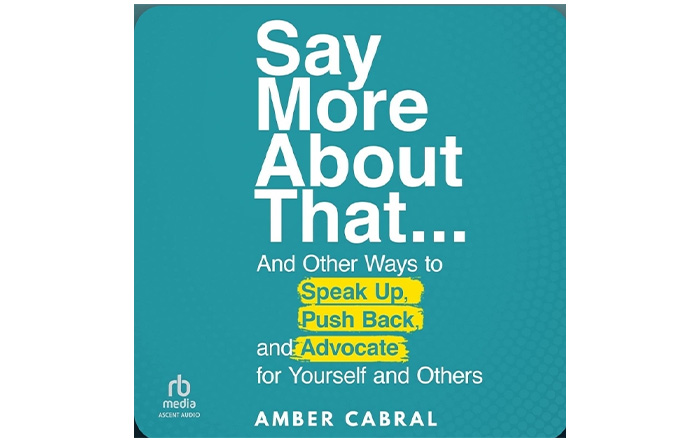Do you love the sound of your voice when you speak up — when you speak up against inappropriate behavior, injustice, or simply because you got the wrong order in your local coffee shop? Doesn’t it sound brave and determined?
Yes, speaking up is a brave thing to do. But speaking up is also a hard thing to do.
Whenever you have a dilemma: to speak up or not to speak up, remind yourself that speaking up is always an opportunity to make things right, learn and grow. It’s an opportunity for people on both ends — the one who’s decided to use their voice and the recipient. If someone keeps mispronouncing your name, you both can learn from your speaking up. You learn how to stand up for yourself and others, and the other person learns how to change their behavior.
People can’t change their behavior or perspective if we don’t tell them they are doing something wrong. Also, we can’t have our needs fulfilled if we don’t express them.
Using your voice isn’t just about speaking up for yourself (or others) in the present, but also about speaking up for every single person who will find themselves in a similar situation in the future. It helps us all change for the better.
For many, speaking up might sound like a call to raise our voices or engage in heated debates. However, it’s quite the opposite. Speaking up is about embodying assertiveness, compassion, curiosity, respect, and responsibility. Naturally, our attempts won’t be perfect as our biases may lead us astray from these principles. Yet, it’s worth trying.
If you want to speak up while treating others with respect, always talk about their actions, not their characteristics. Instead of saying “you’re rude,” try saying “your comment was rude.”
You might choose to start the conversation with sentences like these:
Can we go back to…?
Can you say more about…?
I would like to hear why you…
Are you aware that what you say might be…?
And sometimes you might be the one who did something wrong, so listen to others’ feedback and be appreciative of it (instead of being defensive). Be prepared to apologize if that is what the feedback requires of you.
When something is blatantly offensive or harmful, that’s when we need to say openly and directly why something is wrong.
Next time you want to speak up, you’ll probably be afraid — of sounding dumb, offending someone, or amplifying stereotypes about your group. But it’s in that fear that you ask yourself: what happens if I say or do nothing? Is anyone hurt by my silence? Does anything change for better or worse if I speak up? What’s the cost of not speaking up?

